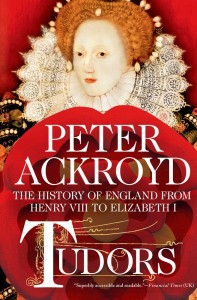Michael Hoak: The history of England is full of watershed moments and events that are known to practically everyone, for better or for worse—the invasion by William of Normandy, the Magna Carta, the reign of Henry VIII, and the Gunpowder Plot to name a few. What is a lesser-known event that you feel should be more common knowledge?
Peter Ackroyd: The birth of Charles Dickens on February 7, 1812.
MH: One of the ideas you explore in your books is a sense of continuity from one age to another. The ancient boundaries of land that are still visible today if you know where to look, the buildings that still exist. This is especially evident with religious sites which may have importance in pre-Druidic practices, then Druidic, then Roman, and all the way through to present day in some cases. What does this reusing of religious sites say about the bonds of a community and religions role in keeping that community together?
PA: The past and present embrace like lovers, thus affirming their mutual identity.
MH: You have often been praised for your ability to not only cover the historical subjects in your books but also the everyday people and places that inhabited those times. With regard to serfdom during the Middle Ages, what sorts of activities and events would the peasant class have been able to participate in that would have brought them the most joy?
PA: Sex.
MH: Revolution is a theme that courses through the veins of history. We often hear of the big ones, the ones that brought about the largest shifts in the balance between classes. How frequent were smaller peasant revolts during the Middle Ages and what was the frequency of their success?
PA: There were revolts and riots throughout English history, mainly unsuccessful.
MH: One of the appeals of traveling to a country like England is that there are historical sites where the memory of a time long-passed is so near the surface that you can almost see the sights and hear the sounds of the people that once lived there. This was, in fact, a theme in the first volume in the history of England, Foundation. What one site in England is a must for visitors who wish to be transported back to antiquity or the Middle Ages? And what is its significance, large or small, to the time it existed?
PA: Clerkenwell Green in London. It has been a place of human settlement since prehistoric times. It is the site of the ancient mystery plays. It has been the home of radical groups for two thousand years.
Peter Ackroyd is an award-winning novelist, as well as a broadcaster, biographer, poet, and historian. He is the author of the acclaimed London: The Biography, and the first, second, and third volumes of his history of England, Foundation, Tudors, and Rebellion. He holds a CBE for services to literature and lives in London.

